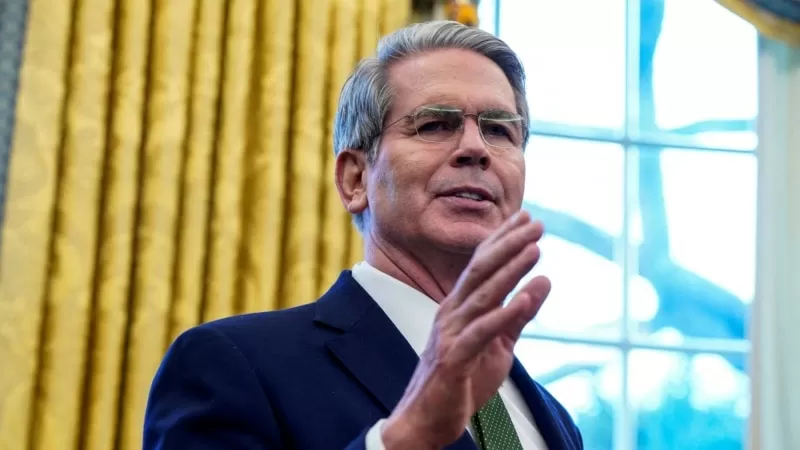In a recent video call between U.S. Treasury Secretary Scott Bessent and Chinese Vice Premier He Lifeng, the two economic officials engaged in a productive discussion about the current state of economic relations between the two countries. The call, which took place on Friday, saw both sides exchanging their concerns and reaffirming their commitment to open communication.
During the call, Secretary Bessent expressed his serious concerns about China’s counternarcotics efforts, economic imbalances, and unfair policies. He stressed the importance of protecting the American economy, workers, and national security through trade and economic policies. This sentiment was echoed by the Treasury, which emphasized the administration’s commitment to pursuing policies that benefit the American people.
On the other hand, Vice Premier He raised concerns about the new tariffs imposed by the U.S. and the trade restrictions on China. The two sides engaged in an in-depth exchange of views on these important issues and agreed to continue communicating on matters of mutual concern. This is a positive step towards managing the relationship between the two countries, especially as they stand on the brink of a renewed trade war.
The U.S. and China both recognize the importance of their economic and trade relations, as highlighted by the call between Secretary Bessent and Vice Premier He. However, in recent years, there have been tensions between the two countries, particularly in terms of trade. In early February, President Donald Trump imposed 10% tariffs on all Chinese goods, citing China’s failure to curb fentanyl trafficking. In response, China retaliated by imposing targeted tariffs on some U.S. imports and putting several companies, including Google, on notice for possible sanctions.
The U.S. has also planned further reciprocal tariffs for all countries that tax American imports, a move that is likely to escalate global trade tensions. During his election campaign, President Trump even threatened to impose 60% tariffs on all Chinese imports. However, in a positive development, President Trump recently announced that he expects Chinese President Xi Jinping to visit the U.S. in the near future.
During the call, Secretary Bessent also emphasized the need for China to rebalance its economy and rely more on domestic consumption for growth, rather than investment and exports. He pointed out that China’s current policies favor the business community over the consumer, which is not sustainable in the long run. This is a sentiment that has been shared by previous Treasury Secretary Janet Yellen, who met with Vice Premier He several times and raised similar concerns about China’s state-led economic policies.
In fact, during a trip to China last year, Yellen warned that these policies were leading to excess production capacity, which was threatening the viability of firms in the U.S. and other market economies. This warning laid the groundwork for President Joe Biden’s decision to impose steep tariff hikes on electric vehicles, semiconductors, and solar products. However, Chinese officials have consistently denied these allegations, arguing that their industries are simply more competitive.
Despite these differences, the call between Secretary Bessent and Vice Premier He is a positive step towards managing the economic relationship between the U.S. and China. Both sides have expressed their commitment to open communication and addressing mutual concerns. This is crucial for maintaining stability and promoting economic growth in both countries.
In conclusion, the recent call between U.S. Treasury Secretary Scott Bessent and Chinese Vice Premier He Lifeng highlights the importance of open communication and cooperation between the two largest economies in the world. While there are still differences to be addressed, the commitment to finding common ground and working towards a mutually beneficial relationship is a positive sign for the future. Let us hope that this call sets the tone for future discussions and leads to a stronger and more stable economic relationship between the U.S. and China.


